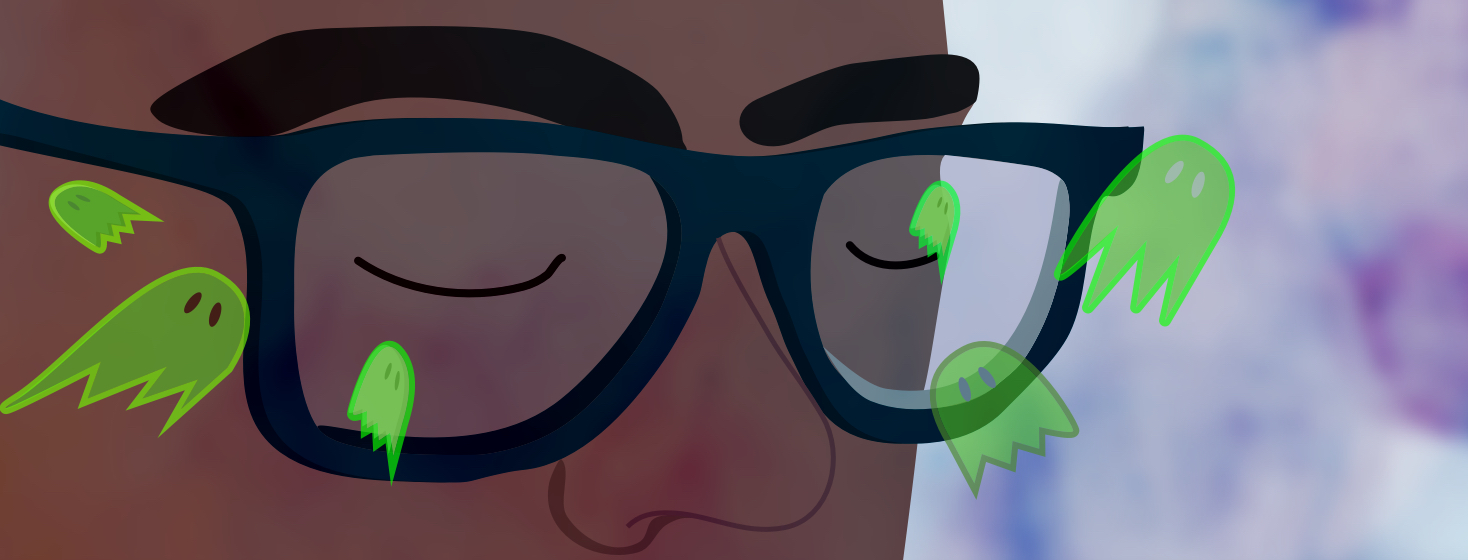Phosphenes: Your Own Personal Aurora Borealis
One night while sleeping, I rolled over, partially awake, but with my eyes closed. I noticed something strange: swirls and flashes of greenish light projecting across my eyelids.
Strange display of lights in my eyes
What could be causing this strange display of lights in my eyes?
Naturally, my eyes shot open, and I was no longer partially but completely awake. There were no lights in my room that might have instigated such a phenomenon. It was after 3 in the morning, and I live in the woods, away from traffic, buildings, or other external light sources. In fact, it was so dark that I'm pretty sure it was a new moon.
I closed my eyes again, and there they were, again! Strange green ghosts flitting across the screen of my eyelids.
My own personal aurora borealis!
Since then, I've experienced lights that were yellow or pink or lavender, or the lights came as quick darting flashes or temporary dots instead of swirls or vapors.
Naturally, I blamed it on having multiple sclerosis. So easy to cast aspersions on the monster, after all.
The visual symptoms of MS
MS is the pesky troublemaker who messes with many of our sensory experiences, including our vision. We can have strange "shaking" eyeballs (nystagmus), extreme pain, and blurriness from optic nerve damage, or droopy eyelids...why not some strange, colored vapor when our eyes are closed?1
Say hello to phosphenes
It turns out my "northern lights" have a name: phosphenes.
Phosphenes are a kind of visual experience in which unusual lights are generated in the eyes due to pressure against the actual eyeball or through stimulation of the visual field directly through a source other than the light itself.2
Cause and occurrence
They occur when the retina or optic nerve is stimulated in the absence of light, leading to impressions "seen" on the inside of the eyelids that are perceived as stars, bursts, or defined shapes like circles, or swirls of light. They can be caused by sudden movement or pressure on the eye, among other things, which can aggravate the optic nerve.2
If you've ever closed your eyes and rubbed really hard, you may experience phosphene that lasts for a second or more before disappearing.2
Featured Forum
View all responsesPhosphenes and multiple sclerosis
Phosphenes are considered a normal phenomenon, but they have also made a brief acquaintance with MS. The most obvious relationship phosphenes have with MS is by way of the common symptom, optic neuritis.2
In optic neuritis, misfiring nerves in the brain by way of the optic nerve can render these strange little light shows. They don't happen only at night – you just may be more likely to notice at night.3
It's important to note that phosphenes can be caused by other conditions or may just be a random and harmless occurrence with no known cause.
In my case, they have no relationship to MS, as far as my doctors and I can tell. My optic nerves are healthy, and I don't have any of the other conditions that might bring on a sudden and unexpected display of dancing lights.
Don't panic
So don't necessarily panic if you suddenly find yourself witnessing an aurora with your eyes closed.
The way I see it (pun intended), I may still have "witness the aurora borealis" to check off my bucket list, but at least I can also claim to "make my own Northern lights!"

Join the conversation